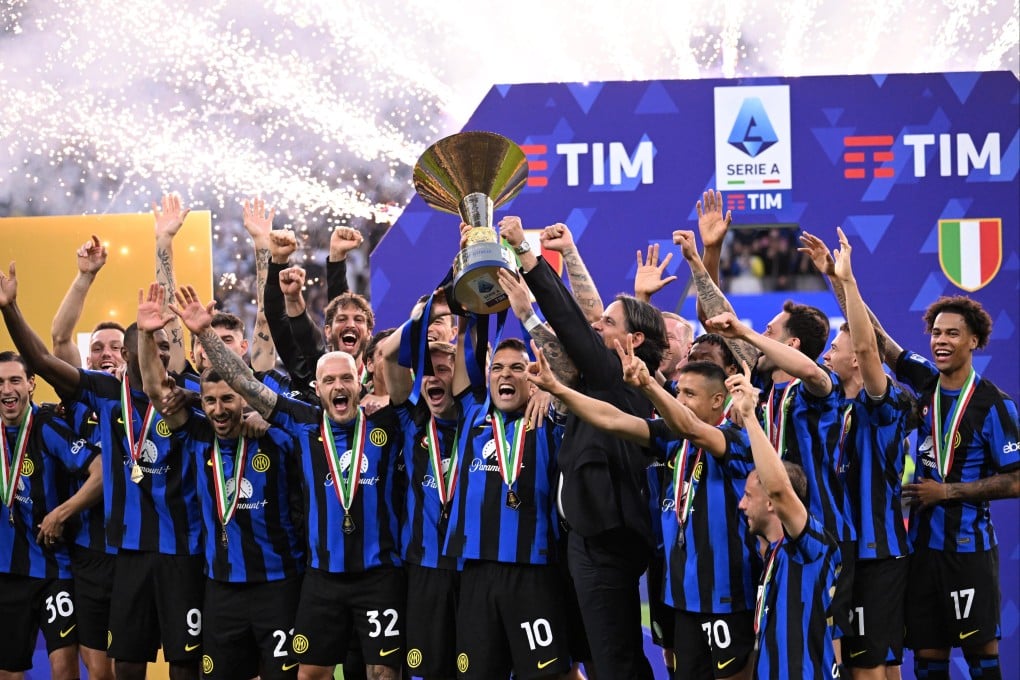Italian Series A club Inter Milan was a plaything for billionaire Zhang Jindong and son Steven – then the money ran out
- The Zhangs’ Suning lost control of the Italian champions after defaulting on a loan from global asset management firm Oaktree
- It was an example of how some of Europe’s greatest clubs, to stay competitive, have crumbled under unsustainable debt

Soon after buying Inter Milan in 2016, Chinese retail billionaire Zhang Jindong installed his 24-year-old son to help run one of the most famous football teams in Italy.
Zhang Kangyang – who also goes by Steven – embraced his new role. A former mergers and acquisitions analyst at Morgan Stanley, he was soon to be seen driving a Pagani Huayra BC sports car, worth more than US$3 million, around the streets of Milan. On the spoiler were the words Nerazzurra – blue and black – referring to the colours of Inter Milan.
Two years later, he was made chairman. Besides supporting the club at football games across Europe, Zhang also became a regular fixture at Italy’s most-sought-after social events, ranging from Formula One races to Gucci fashion shows.
Last month should have been his crowning achievement. On April 22, on a rainy evening in front of 75,000 fans in the San Siro stadium, Inter Milan won the its 20th league title by beating hated city rivals AC Milan.
But Steven was absent from the directors box, as he had been all year, in part driven by a Hong Kong bankruptcy case. Instead, he appeared in a video on YouTube congratulating and thanking the club’s staff and players.

The morning after, Steven joined an Instagram live hosted by one of Inter’s star players, Turkish national Hakan Calhanoglu, with several members of the nerazzurri squad. Some players jokingly asked for a gift, others for a contract renewal.